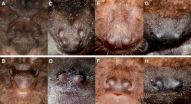(Press-News.org) A new study out today in the journal Neurology examines the question of quality of life for individuals with a common form of lower back pain called lumbar spinal stenosis. The findings show that, when asked to choose between treatments that reduced pain or would help them stand or walk, patients overwhelmingly chose pain relief.
"There has long been a debate in the medical community over striking the right balance between pain relief and physical function," said John Markman, M.D., director of the Translational Pain Research Program in the University of Rochester Department of Neurosurgery and lead author of the study. "While physicians have leaned toward the need to increase mobility, this study shows that patients have a clear preference for pain relief."
Lumbar spinal stenosis is brought about by a narrowing of the spinal canal caused by the degeneration of the vertebrae, discs, joints, and ligaments that comprise the spinal column, resulting in a compression of nerve roots. This narrowing of the spinal canal triggers pain, tingling, and numbness in the lower back, buttocks, and legs which is most commonly experienced when a person is upright or walking.
There is compelling evidence that surgery provides relief and improves mobility, however many patients outlive this benefit or are not candidates for surgical treatment. Epidural steroid injections also may provide short term relief of pain.
Researchers surveyed 269 patients with lumbar stenosis with chronic back pain and difficulty standing and walking. The researchers asked patients about their priorities, specifically, whether they prefer a treatment that reduced their pain or one that would allow them to walk further. The study participants overwhelmingly (79 percent) chose reduced pain over improved mobility - no matter how much the condition impaired their ability to stand and walk.
"Even the patients who could not stand long enough to pick up a letter from their mail box or wash the dishes after dinner chose pain relief," said Markman.
This research is an example of the new standards for pain relief that are being created based on input from patients. To a great extent, levels of pain relief have been left to pharmaceutical company scientists and government officials to decide, often with little guidance from patients. There is now a growing demand that new generations of pain medications are not only safe, but meet patient's expectations for pain relief.
The most common study populations for these newer drugs are patients with chronic low back pain. Many experts are arguing that new pain relievers, especially those with greater risks like opioids, should not just relieve pain but also improve patients function such as their ability to walk. This new study calls into question those assumptions.
"This study convincingly demonstrates the need to prioritize pain relief because that is what patients want," Markman said.
INFORMATION:
Additional co-authors include Jennifer Gewandter, Maria Frazer, Babak Jahromi, Christine Pittman, Xeuya Cai, and Robert Dworkin with the University of Rochester, John Farrar with the University of Pennsylvania, and Kushang Patel with the University of Washington.
This news release is available in German.
Ten percent of the world's cotton is produced in the Xinjiang region in northwestern China. Irrigating the cotton fields, however, is causing ecological problems. After many years of research, a team of international researchers headed by Prof. Markus Disse at the Technical University of Munich (TUM) has developed a set of recommendations aimed at preserving the local environment.
The Tarim basin in the Xinjiang region of northwestern China is unique. No other natural landscape is located as far from the ocean. It has ...
EVANSTON, Ill. --- In both blacks and whites, everyday feelings of discrimination can mess with the body's levels of the primary stress hormone, cortisol, new research suggests.
In African-Americans, however, the negative effects of perceived discrimination on cortisol are stronger than in whites, according to the study, one of the first to look at the biological response to the cumulative impact of prejudicial treatment.
The team of researchers, led by Northwestern University, also found that the teenage years are a particularly sensitive period to be experiencing ...
Are black voters more likely to vote for black candidates, regardless of political party affiliation?
A new study by a University of Cincinnati researcher presents discouraging news for Republican leaders hoping to win over this Democratic stronghold by nominating black Republican candidates for political offices.
"There are some very successful African-American Republicans, but those folks don't attract African-American votes," said the study's author, David Niven, a University of Cincinnati professor of political science. "Party matters so much more than race."
In ...
Michigan hospitals participating in the American College of Cardiology's "See You in 7" program demonstrated important reductions in 30-day readmission rates for Medicare heart failure patients when compared to non-participating hospitals despite only modest increases in seven-day follow-up appointments, according to a study today in JACC: Heart Failure.
"See You in 7" is part of the ACC's Hospital-to-Home initiative, a national quality improvement program aimed at reducing heart disease-related hospital readmissions and improving the transition from hospital to home. ...
The barbastelle bat may emit two different types of weak echolocation signals alternately, one upward through the nose and one downward through the mouth, to find prey while undetected and to sufficiently keep track of the environment, respectively, according to a study published September 9, 2015 in the open-access journal PLOS ONE by Anna-Maria Seibert and colleagues from the University of Tübingen, Germany.
Barbastelle bats prey almost exclusively on eared moths, using "stealth echolocation" signals that are 10-100 times weaker than those of other aerial hawking ...
Clinical trials for a dengue fever treatment could start within a year, following a discovery by University of Queensland scientists.
UQ's School of Chemistry and Molecular Biosciences Head Professor Paul Young said the researchers had identified similarities in how the body reacted to dengue virus and bacterial infections, in a finding that would allow them to re-purpose existing drugs.
"We have discovered that the dengue virus NS1 protein acts as a toxin in the body, in a similar manner to the way bacterial cell wall products lead to septic shock in bacterial infections," ...
US fans of the National Football League (NFL) and sports reporters assigned to specific teams have unrealistic expectations about how well their team will perform, finds new research from UCL and Oxford University.
The study, published in PLOS ONE, also reveals which teams are most liked and disliked, as well as which teams have the most optimistic fans.
The main results are from an April 2015 survey of 1,116 US-based NFL fans, who were asked to predict how many games their favourite and least favourite teams would win in the 2015 season. As each team plays 16 games ...
New research suggests that offering financial incentives for farming industries to mitigate the impact agriculture has on the environment, by reducing fertiliser use and 'sparing' land for conservation, for example, actually has a positive effect on critical areas such as greenhouse gas reduction and increased biodiversity.
It has been a point of contention whether such 'cash for conservation' initiatives succeed. For the latest study, researchers aggregated investment in environmental incentives at a national level for the first time, and, by comparing them to broad ...
COLUMBUS, Ohio - A new study suggests that changes in immune function can occur as long as five years before the diagnosis of a brain tumor that typically produces symptoms only three months before it is detected.
Using blood samples collected an average of 15 years before brain tumor diagnosis to analyze interactions between 12 allergy-related proteins, researchers looked at how those relationships differed between people later diagnosed with brain tumors and cancer-free controls.
Among people who were subsequently diagnosed with this brain tumor, called a glioma, ...
The Wilson Center's Science and Technology Innovation Program (STIP) is releasing a five-episode video series looking at the potential for additive manufacturing to transform how we build things - and what we need to do to fully realize this potential.
Beyond the Desktop explores how additive manufacturing could affect the fields of medicine, aerospace, space technology and more. Beginning Sept. 9, 2015, a new episode will be released each Wednesday through early October. Episodes will be posted on the Wilson Center homepage: https://www.wilsoncenter.org/3dprinting
Many ...



